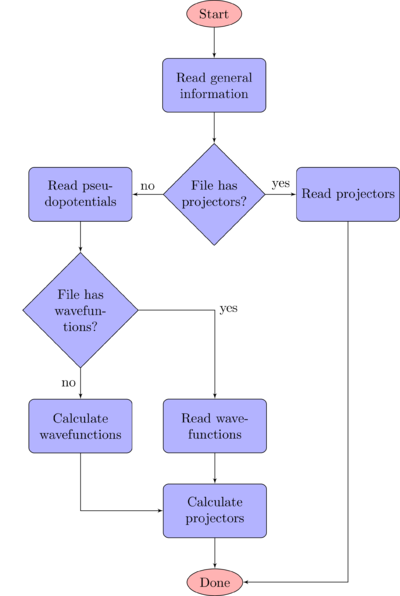Libpspio
| License | Authors | Download |
|---|---|---|
| MPLv2 | PSPIO team | Gitlab |
Libpspio is a pseudopotentials I/O library for Density-Functional Theory (DFT) calculations. It can both read and write pseudopotential data, which makes it suitable for use with pseudopotential generators and electronic structure codes. Its main objective is to let any DFT code access or produce pseudopotential information without having to care about file formats. In order to maximize its relevance, Libpspio is fully code-agnostic and implements as many formats and variants as possible. Libpspio is a valuable alternative to most error-prone homemade implementations and is helpful in improving file format specifications. In order to enhance its portability and facilitate the quality checking of its source code, Libpspio has been written in C. The widespread use of Fortran within the scientific community has however been kept in mind, which is why Libpspio provides Fortran bindings to most of its API.
Installation
Prerequisites
Warning
There is no stable release of Libpspio yet. Current versions are mostly stable but still lack support for some file formats.
From version 1.0, users of Libpspio will just have to make sure that they have the Libxml2 XML parsing library installed on their platform, which is the case of most existing Unix-like systems. They will be able to build Libpspio out of the box without having to install anything else. Those who need to build Libxml2 its source can refer to the corresponding build instructions.
Instructions
On how to install, link, etc.
Tests
Libpspio contains several unit tests that can be used to check the compilation and to perform regression testing. These tests can be executed by doing:
$ make check
Programming interface
Libpspio is made of three component categories:
- a data structure to store the pseudopotential data in a format-independent way;
- a set of routines and functions to access and modify this data structure;
- a set of error-handling routines and their associated internal sturctures.
A complete list of routines and types provided by the library can be found in the Doxygen documentation:
Using Libpspio
The following diagram describes a typical way for a DFT code to get pseudopotential data:
Libpspio provides function calls for each of these steps, that is:
- determining which kind of information is present in the file;
- parsing the file and extracting the relevant data;
...
Current developments
-
The library is being augmented to finalise the coverage of most formats for norm-conserving pseudopotentials, and is now being expanded to PAW and ultrasoft formats.
-
The library is being interfaced with Abinit, Octopus, and APE to test and fine tune the interface.
Future developments
Future developments can be consulted on the Gitlab Project Page.
